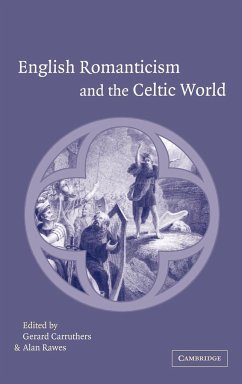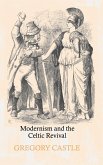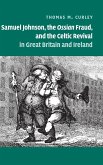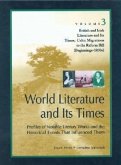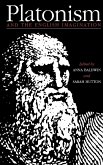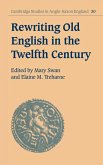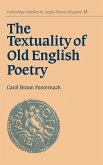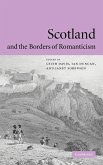This book explores British Romantic writers' responses to the national and cultural identities of England, Ireland, Scotland and Wales.
English Romanticism and the Celtic World explores the way in which British Romantic writers responded to the national and cultural identities of the 'four nations' England, Ireland, Scotland and Wales. The essays collected here, by specialists in the field, interrogate the cultural centres as well as the peripheries of Romanticism, and the interactions between these. They underline 'Celticism' as an emergent strand of cultural ethnicity during the eighteenth century, examining the constructions of Celticness and Britishness in the Romantic period, including the ways in which the 'Celtic' countries viewed themselves in the light of Romanticism. Other topics include the development of Welsh antiquarianism, the Ossian controversy, Irish nationalism, Celtic landscapes, Romantic form and Orientalism. The collection covers writing by Blake, Wordsworth, Scott, Byron and Shelley, and will be of interest to scholars of Romanticism and Celtic Studies.
Table of content:
Introduction: Romancing the Celt Gerard Carruthers and Alan Rawes; 2. 'And the Celt Knew the Indian': Sir William Jones, the Celtic Revival and the Oriental Renaissance Michael Franklin; 3. 'Our Names may be Heard in Song. But what avails it when our strength has ceased?': The Critical Response to Ossian's Romantic Bequest Dafydd R. Moore; 4. Blake and Gwendolen: Territory, Periphery and the Proper Name David Punter; 5. The Welsh American Dream: Iolo Morganwg, Robert Southey and the Madoc Legend Caroline Franklin; 6. Wordsworth, North Wales, and the Celtic Landscape J. R. Watson; 7. 'My Mother's Gordons': the force of 'Celtic memories' in Byron's Thought' Bernard Beatty; 8. 'The Revolt of Erin': Ireland and Islam in Shelley's Oriental Poetry Arthur Bradley; 9. Byron and 'The Ariosto of the North' Andrew Nicholson; 10. Scott and the British Tourist Murray G. H. Pittock; 11. Felicia Hemans, Byronic Cosmopolitanism, and the Ancient Welsh Bards William D. Brewer; 12. Writing which Nation? Luttrell of Arran and the Romantic Invention of Ireland Malcolm Kelsall; 13. 'Shining in Modest Glory': Contemporary Northern Irish Poets and Romantic Poetry Michael O'Neill.
English Romanticism and the Celtic World explores the way in which British Romantic writers responded to the national and cultural identities of the 'four nations' England, Ireland, Scotland and Wales. The essays collected here, by specialists in the field, interrogate the cultural centres as well as the peripheries of Romanticism, and the interactions between these. They underline 'Celticism' as an emergent strand of cultural ethnicity during the eighteenth century, examining the constructions of Celticness and Britishness in the Romantic period, including the ways in which the 'Celtic' countries viewed themselves in the light of Romanticism. Other topics include the development of Welsh antiquarianism, the Ossian controversy, Irish nationalism, Celtic landscapes, Romantic form and Orientalism. The collection covers writing by Blake, Wordsworth, Scott, Byron and Shelley, and will be of interest to scholars of Romanticism and Celtic Studies.
Table of content:
Introduction: Romancing the Celt Gerard Carruthers and Alan Rawes; 2. 'And the Celt Knew the Indian': Sir William Jones, the Celtic Revival and the Oriental Renaissance Michael Franklin; 3. 'Our Names may be Heard in Song. But what avails it when our strength has ceased?': The Critical Response to Ossian's Romantic Bequest Dafydd R. Moore; 4. Blake and Gwendolen: Territory, Periphery and the Proper Name David Punter; 5. The Welsh American Dream: Iolo Morganwg, Robert Southey and the Madoc Legend Caroline Franklin; 6. Wordsworth, North Wales, and the Celtic Landscape J. R. Watson; 7. 'My Mother's Gordons': the force of 'Celtic memories' in Byron's Thought' Bernard Beatty; 8. 'The Revolt of Erin': Ireland and Islam in Shelley's Oriental Poetry Arthur Bradley; 9. Byron and 'The Ariosto of the North' Andrew Nicholson; 10. Scott and the British Tourist Murray G. H. Pittock; 11. Felicia Hemans, Byronic Cosmopolitanism, and the Ancient Welsh Bards William D. Brewer; 12. Writing which Nation? Luttrell of Arran and the Romantic Invention of Ireland Malcolm Kelsall; 13. 'Shining in Modest Glory': Contemporary Northern Irish Poets and Romantic Poetry Michael O'Neill.

